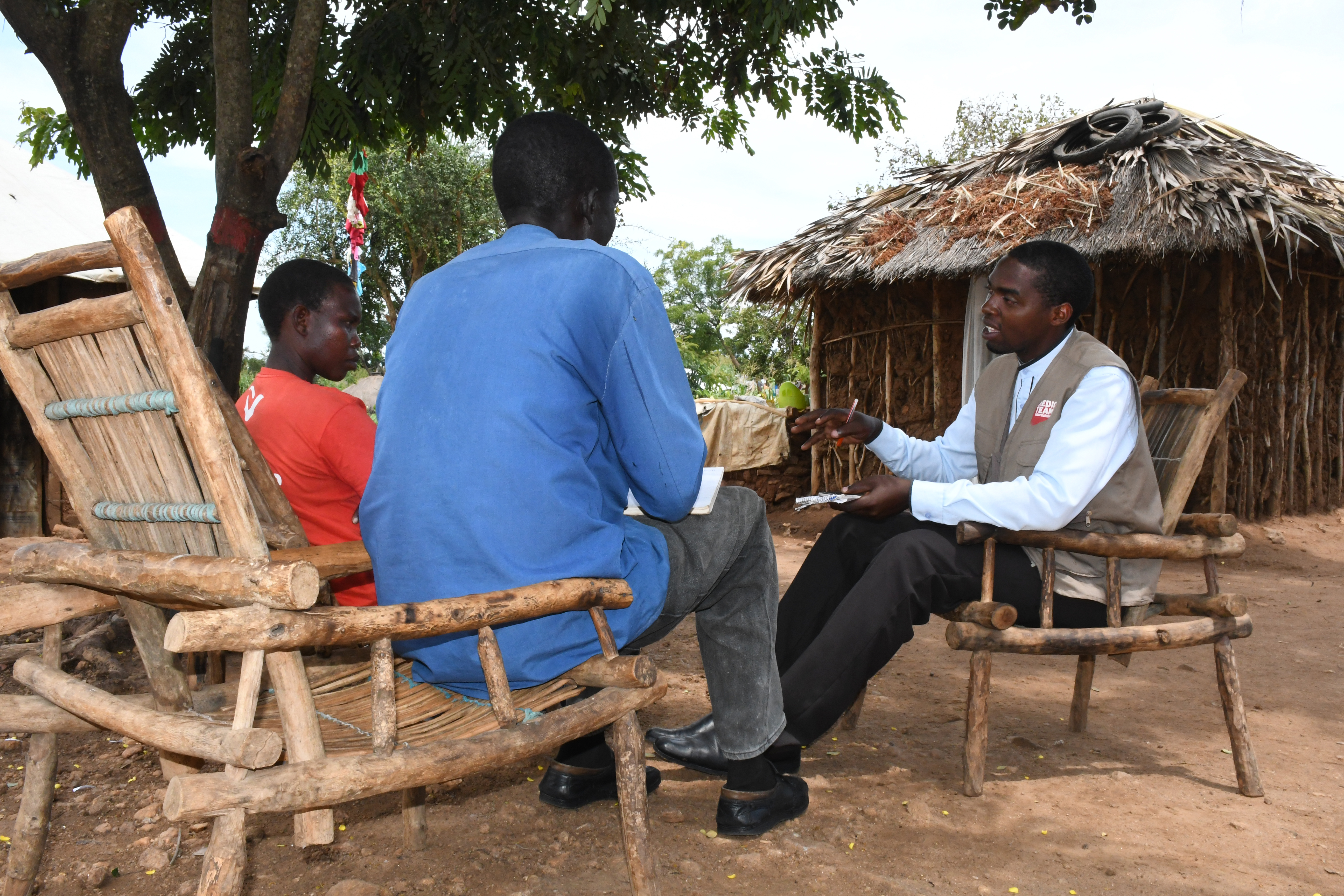UNHCR helps prepare new guidelines for HIV treatment in southern Africa
UNHCR helps prepare new guidelines for HIV treatment in southern Africa

JOHANNESBURG, South Africa, April 3 (UNHCR) - When Monique Vitis was diagnosed with HIV, the Rwandan refugee was rejected by her family, knew no one else to turn to and twice was forced to sleep in a park Today she is receiving treatment, considers herself healthy and is willing to speak out on her ordeal.
Vitis is a symbol both of the unique problems faced by refugees living with HIV and the importance of new guidelines that have been prepared for managing antiretroviral therapy (ART) for displaced populations in southern Africa. She described her experiences at a news conference last Friday where the guidelines - initiated by the UN refugee agency and the Southern African HIV Clinicians Society and prepared by a special committee - were unveiled.
"I was rejected by my family, who I was living with, when they found out I was HIV-positive. I had no access to the kitchen - I had my own fork and spoon and was not allowed to touch other things," said Vitis, who was helped by the Jesuit Refugee Service - a UNHCR partner - to receive the free treatment available from the South African government.
"I am so grateful for all the support I have received here and all the advice from the doctor," she said, at one point crying. "In my community stigma is still very high ... there are so many people in the community who will not go for tests because they want to avoid the stigma."
The new guidelines are designed to help health workers in deciding the most appropriate treatment for displaced populations, including internally displaced persons, migrants, refugees and asylum seekers. The number of migrants in southern Africa is substantial but uncounted, while the number of refugees and asylum seekers in the region is estimated at 300,000.
"Displaced persons are a unique group with special needs. They are often stigmatised, marginalised and discriminated against, making them highly vulnerable and insecure in their host country," say the guidelines. Displaced people arriving in southern Africa often come from areas with much lower HIV rates than found in the host country and therefore face an increased risk of infection.
In southern Africa, only Botswana excludes refugees from access to ART treatment although there can be practical obstacles in other countries, such as shortages of medicine or discrimination from local health workers. The guidelines note the right to treatment is based on law and universal principles of medical care: "Providing HIV-related services to displaced populations is a difficult yet critical undertaking, which is firmly rooted in international human rights law."
"Those in need of treatment are often denied care," say the guidelines, prepared by an expert committee that included UNHCR, the Centres for Disease Control and Prevention, Médecins Sans Frontières and health specialists from South Africa. "However, since the roll-out of affordable antiretroviral therapy worldwide, there has been an international push to recognise every individual's right to treatment and to ensure universal access to ART," the guidelines add.
Although displaced persons often come from areas with lower infection rates than the host countries, a failure to provide HIV prevention and care to displaced persons can undermine a government's efforts to control the disease among its own population.
The guidelines cover many problems common to displaced people, such as the possibility of them moving again during treatment, the lack of friends or relatives to provide support and potential legal complications of treating unaccompanied minors.
They also refute some common myths surrounding HIV and displaced persons that have fed xenophobia. For example, rather than facing higher HIV rates from conflict, evidence suggests the harsh conditions faced by refugees have actually produced lower rates.
There have also been fears that providing access to ART would act as a magnet, drawing in those displaced individuals with HIV from other countries. But health workers at the launch of the HIV treatment guidelines in South Africa said they had never seen a patient drawn to their country by the promise of free treatment.
"Health workers should advocate for non-discriminatory medical practices and must play an active role in reducing discriminatory attitudes and dispelling myths regarding displaced persons," says the guide.
By Jack Redden in Johannesburg, South Africa









